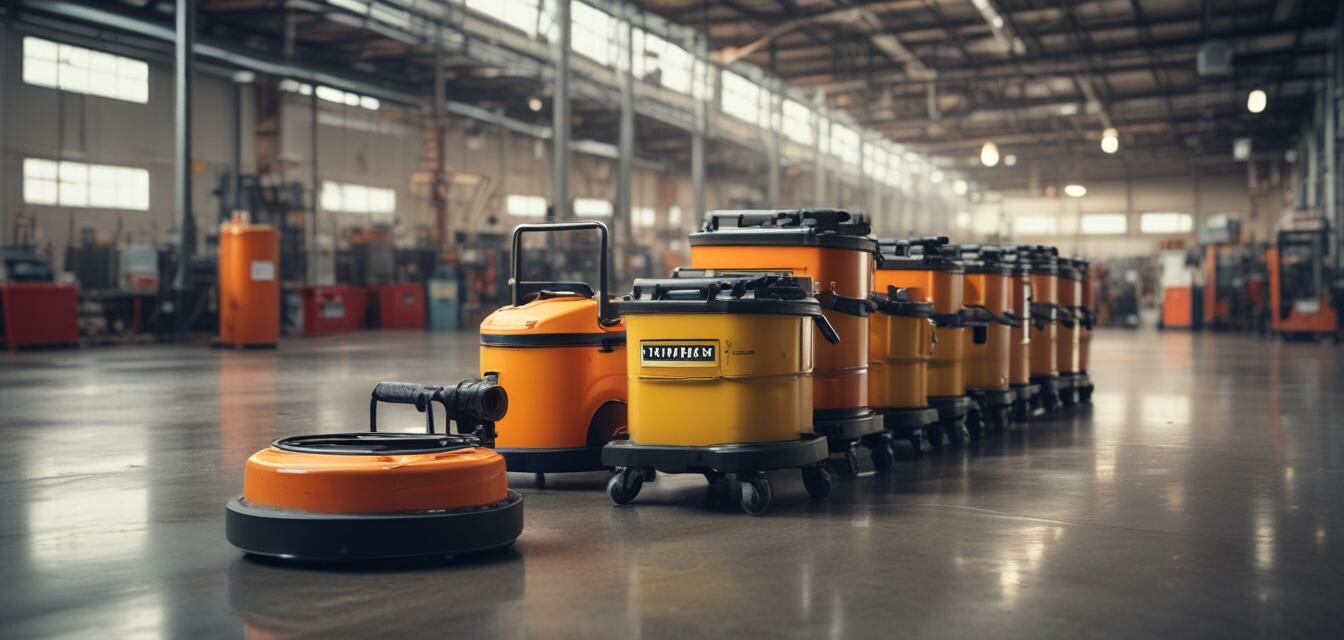
This article was generated using AI and is based on real customer reviews from the Amazon platform. It contains affiliate links, meaning we may earn a commission—at no extra cost to you. As Amazon Associates, we earn from qualifying purchases.
Safety Tips for Using Heavy-Duty Cleaning Equipment
Key Takeaways
- Always wear appropriate personal protective equipment (PPE).
- Read the user manual before operating any machinery.
- Ensure proper training for all operators.
- Keep work areas clean and organized to prevent accidents.
- Regularly inspect and maintain equipment.
Using heavy-duty cleaning equipment significantly increases efficiency in cleaning tasks, especially in professional settings like hotels, offices, and industrial sites. However, with increased power comes the responsibility of ensuring safety. Below, we will explore essential safety tips for operating heavy-duty cleaning machinery effectively.
1. Personal Protective Equipment (PPE)
Always equip yourself with the correct personal protective equipment. The type of PPE required can vary based on the equipment being used but generally includes:
- Safety goggles
- Gloves
- Ear protection
- Dust masks
- Steel-toe boots
2. Read the User Manual
Before using any heavy-duty cleaning equipment, it’s crucial to read the user manual thoroughly. Understanding the features, components, and proper usage will help avoid accidents. Take notes on safety precautions mentioned in the manual. If you need a refresher on how to read manuals effectively, check our Tips and Tricks category.
3. Proper Training
Ensure that all operators undergo proper training. This is essential for effective handling and operation. Training should cover:
- Understanding different machines
- Operational safety practices
- Emergency procedures
Training Best Practices
Utilize hands-on training programs supplemented by theoretical instruction. Providing a simulated training environment can help operators gain confidence without the risks of real-life settings.
4. Keep Work Areas Clean
A clean workspace can prevent a multitude of accidents. Ensure that all debris is removed from the operational area. Use proper signage to indicate wet floors or other potential hazards. For more about maintaining a tidy environment while using heavy-duty gear, you can view our guide on Buying Guides for maintenance tips.
5. Regular Equipment Checks
Conduct routine inspections of all equipment. Look for signs of wear and tear, and address any issues immediately. A checklist for regular maintenance can be helpful:
| Equipment | Check Frequency | Action Items |
|---|---|---|
| Vacuum Cleaners | Weekly | Inspect filters, clean brushes, and check for blockages |
| Floor Scrubbers | Bi-weekly | Check pads, inspect cables, and verify water levels |
| Power Washers | Monthly | Review hoses, clean nozzles, and check oil levels |
| Steam Cleaners | Monthly | Inspect seals, test pressure, and ensure proper functioning |
6. Be Mindful of Surroundings
When operating heavy-duty cleaning equipment, always be mindful of your surroundings. Ensure that all employees and bystanders are at a safe distance. Awareness can prevent unintended accidents.
7. Emergency Preparedness
Prepare for emergencies by having a plan. Conduct drills to ensure all operators know what to do in case of equipment failure or accidents. Maintain an accessible first aid kit at all times.
Conclusion
Operating heavy-duty cleaning equipment with safety in mind is imperative for both personal health and workplace efficiency. By following these essential tips, you can create a safer environment for all workers. For more tips on optimizing your cleaning routine, feel free to explore our other articles in the News and Trends section.
Pros
- Enhanced workplace safety
- Increased equipment lifespan
- Improved efficacy of cleaning tasks
Cons
- Initial costs for PPE and training
- Time required for training and equipment checks